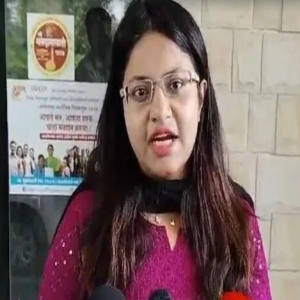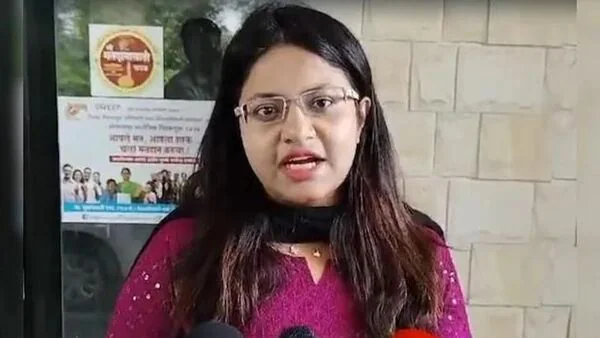
 A. J. Philip
A. J. Philip

One of my friends, Dr VP Joy, retired as Chief Secretary of Kerala last year. Many decades ago, he had his first on-the-job training when he was attached to the then-District Collector of Kottayam, Shri KJ Alphons. The latter rose in his career and became Secretary in Kerala, only to quit the service to become an MLA and, later, Union Minister.
IAS probationers are attached to an IAS officer for some time. I learned about this practice when I visited Singhbhum in what was South Bihar, now Jharkhand. I was staying in the state guest house there, and a young IAS probationer was posted there.
He was an MBBS doctor and told me about his job there. He would accompany the District Magistrate on his tours. Otherwise, he would sit in his office and learn how cases were heard and decisions were made. As a probationer, he was not entitled to many perks, like an official vehicle and staff.
He had a very good relationship with the DM, so much so that he would be picked up on his way to the office. He also took care to ensure that his creature comforts were taken care of. The young officer and the senior under whom he served would have a lifelong relationship.
I remember that it was with a lot of pride that Shri Alphons told me about Dr Joy having his first district training under him. I am sure all the IAS officers remember the one under whom they learned administration at the grassroots level.
Why I write this is because a lady IAS probationer posted at the District Collectorate in Pune has kicked up a shindy. Her behaviour is a pointer to the way officers are recruited and posted in the country.
A word about the Union Public Service Commission (UPSC), which is tasked with the responsibility of recruiting people to the Central services, would be in order. At my school, I had a friend who was very good at playing the tabla. He would get the first prize in all the competitions he took part in. While I became a journalist, he became an Assistant at the UPSC, where he eventually became a Section Officer in charge of Confidential One, which was his section.
He told me that the UPSC, set up in 1926 as PSC, had a fool-proof system to ensure that no information leaked out of the office. A friend who served as the Secretary of the UPSC chairman told me that those engaged in interviewing candidates would get the names of the candidates only when the interview started.
In other words, manipulation of the UPSC results was almost impossible. While I was in Chandigarh, I was introduced to a boy who was in the state service. His father, who was a wheeler-dealer of sorts, was believed to hold the cynical belief that "everybody has a price and once the person's price is known, he can be purchased."
He had the ear of the Chief Minister. What I noticed about his son was the expensive suit he wore with two thick Mont Blanc pens adorning his breast pocket. He told me that his ambition was to get into the IAS. If there was any possibility of buying a seat in the coveted service, he would have become an IAS officer.
Now, let me return to the IAS probationer, Puja Khedkar. She was still undergoing training at the Lal Bahadur Shastri National Academy of Administration at Mussoorie. She was sent to Maharashtra, probably her state cadre, for district training. She did not realise that the last letter in the acronym IAS stands for service.
Instead, she saw it as an entitlement. She demanded a host of facilities like a car, a well-appointed office, and staff. Since probationers are not entitled to such benefits, she was not given any. So, what she did was to "hire" a luxury car for her daily needs. What's worse, she even fixed a blue beacon light on the roof of the car. There are rules governing the use of beacon lights and not anybody or everybody can fix such a light, which has functional purposes. Such a light on an ambulance vehicle is to facilitate quicker movement of the vehicle.
True, it is not a crime to ask for facilities to which one is not entitled. As the story goes, a Lower Division Clerk was advised by his doctor to keep his legs on a raised platform. He made a request to his boss to sanction a footrest. Since he could not find any precedent, he referred the matter to his boss with a written explanation.
The file started moving. Eventually, it reached the Cabinet Secretary, who wrote the final note that if everyone was given a footrest, it would cost a large sum of money, and the socialist government could not afford it. The file started moving down. It finally reached the man concerned. He found that the file had become voluminous. He started using the file as his footrest!
The story may be apocryphal, but it has a kernel of truth. It is difficult for the government to make an exception for any single individual, for it has to consider more than one million employees! What is objectionable in Puja Khedkar's case is the manner in which she was employed.
She was selected under two special categories. One, she belongs to a non-creamy section of the OBCs. That itself is questionable given the report that her father was a senior government official. She is certainly not poor, as she can afford a luxury car to commute to the office. Her family has enough land, which would certainly put her in a different economic category — certainly not the poor OBC, which needs crutches to go forward.
She also claimed that she had a physical condition, which entitled her to the seat reserved under the disability quota. The UPSC and the Personnel Department follow certain guidelines regarding disability. A person who has no vision in one eye is not considered "disabled" if the other eye is perfect in every respect.
I learned about this when a friend appeared for the Civil Services exam. In his childhood, one of his siblings thrust a compass into his right eye, making him partially blind. He would not have been eligible for reservation under the disability quota if his other eye was perfect. There was partial blindness in his "normal" eye. That is how he was selected for the railway service, where he is now holding a responsible post.
In Puja Khedkar's case, she claims locomotor deficiency, which restricts the movement of her arms and legs. The doctors and technicians can easily assess the deficiency. She should have submitted herself before the medical board at the All India Institute of Medical Sciences (AIIMS), which would have certified whether she was eligible for inclusion in the disabled category.
On one pretext or another, she did not present herself before the board, not once but five times. She had also not been able to get a proper certificate of disability from the hospitals she allegedly approached. It is also on record that she submitted a full-fitness certificate while joining a medical college in 2007. What's noteworthy is that the Personnel Department allowed her to undergo the required training at Mussoorie and join the IAS without her clearing the medical check-up.
The central government has ordered a medical examination, for which it has appointed a one-man committee to prove whether she suffers from any disability. Had the government followed the normal protocol, it could have averted the embarrassment caused by Puja Khedkar's tantrums. This raises concerns about the system followed by the Personnel Department. If she had not thrown tantrums, she could have continued in service. This does not show the UPSC in a good light.
What's more, she had raised allegations against the District Magistrate under whom she served. She believes that because of his intervention, the Personnel Department has asked the state government to end her training and send her back to the Academy at Mussoorie.
Some government employees have come forward to vouch for the conduct and character of the DM, which disproves her theory that he was instrumental in expelling her from service. And to confound her problem, her mother has been arrested by the police for wielding a gun and threatening her villagers with it. All this is disconcerting, to say the least.
Meanwhile, reports have come about an IAS officer in Telangana who got into the service based on certain disabilities. For instance, he allegedly suffers from a Polio attack. Videos of him riding a horse and cycling do not suggest that he was ever a polio victim. This raises the question of whether the norms are strictly followed in filling vacancies under the disabled categories in civil services.
The daughter of a powerful political leader got into the IAS on her first attempt. As of now, there is no proof of any hanky-panky in the selection of candidates.
The IAS, often referred to as the "steel frame of India," derives its epithet from Sardar Vallabhbhai Patel, the "Iron Man of India." He used the term to emphasise the pivotal role of civil services in maintaining the unity and stability of a newly independent India. The IAS remains one of the most prestigious and sought-after services, essential for the effective governance of the nation. Any compromise in the recruitment and integrity of this system could severely undermine the interests of the country.
IAS officers are expected to exhibit impartiality and integrity in their roles. Their decisions impact the lives of millions and the overall stability of the country. By maintaining fairness and upholding the rule of law, IAS officers help to ensure that the government's policies and programmes are implemented justly and effectively. Compromising on the recruitment process could introduce biases and weaken the rule of law, leading to instability and a loss of public trust.
Efficiency and effectiveness are hallmarks of the IAS. Officers are trained to handle complex administrative tasks, manage large-scale programs, and implement government policies efficiently. They are also encouraged to innovate and develop new solutions to the challenges faced by the government. Any dilution in the recruitment standards would likely result in a decline in the quality of administration and governance, hampering the country's progress.
Adaptability and flexibility are essential traits for IAS officers, who often work in diverse and challenging environments, from remote villages to bustling urban centres. They must understand and address the varied needs of India's vast and heterogeneous population.
A compromised recruitment system could fail to identify individuals capable of thriving in such diverse contexts, leading to inefficiencies and dissatisfaction among the populace. It is not my contention that the standards of recruitment have fallen beyond redemption. The nation has to be on guard against tendencies that allow an officer to join service without even completing the medical test.
All the institutions of the state have indisputably suffered because of the willingness shown by the government to fill them with their own people. If the UPSC goes the NEET way, there will be no redemption for the administration. Any Tom, Dick, and Harry will be able to become an IAS officer to the detriment of the nation. Let's guard against any further deterioration!